This content was originally published by the Longmont Observer and is licensed under a Creative Commons license.
Oregon is a beautiful, multi-faceted state whose geography ranges from coastline to dense forest to high desert or rich farmland. Nestled in the forests of South-Central Oregon is the state's only National Park. Its namesake, Crater Lake, is both a beautiful gem and a marvel of nature that is definitely worth the two days' drive or five-hour flight/drive combo.
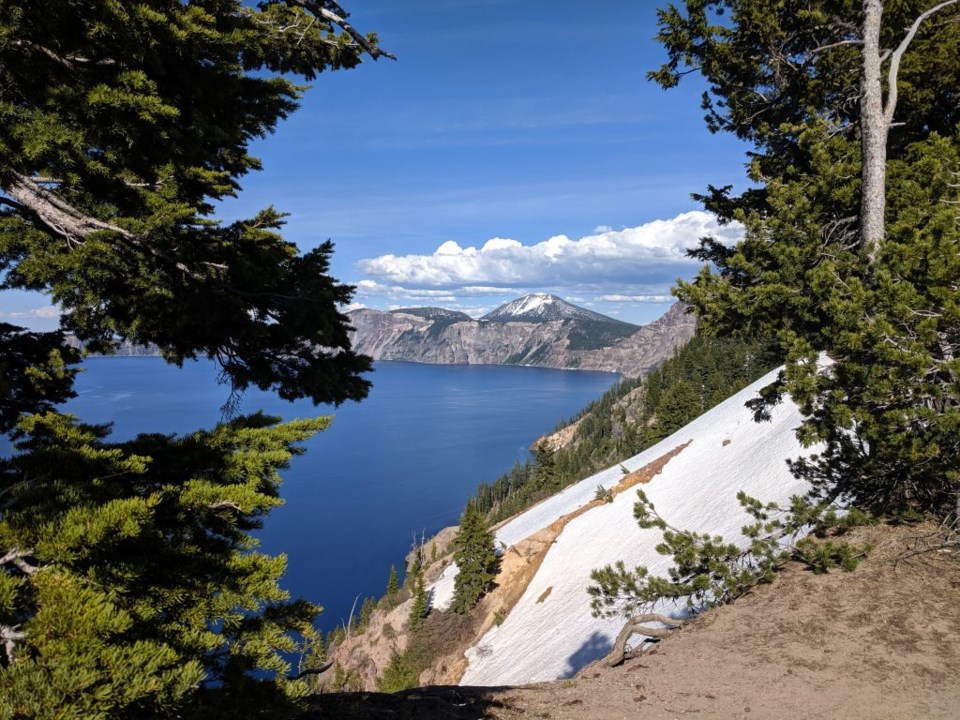
Crater Lake was formed around 7,700 years ago when Mount Mazama erupted. The eruption was only one of many, but it was a big one, spewing lava and ash everywhere and collapsing the mountain so completely that it formed a huge crater over 1,900 feet deep and almost five miles wide. You can still see the general shape of Mount Mazama, as it forms the walls around Crater Lake, the deepest lake in the United States.
You may not think of snow when you think of south-central Oregon, but the Crater Lake area gets an average of 43 feet of snow! That's over six times the annual average in our snowy state, and even Alaska, and it's eighteen times the national average. Forty-three feet of snow is also more than enough to fill Crater Lake with crystal clear water year-round.
Did you catch that? Crater Lake has no rivers feeding into it. Its only input is snow and rain, which explains why it is so clear: There is nothing bringing water to the lake and leaving sediments behind. Between precipitation, evaporation, and the seepage of water to underground springs, the water level remains an overall constant from year to year.
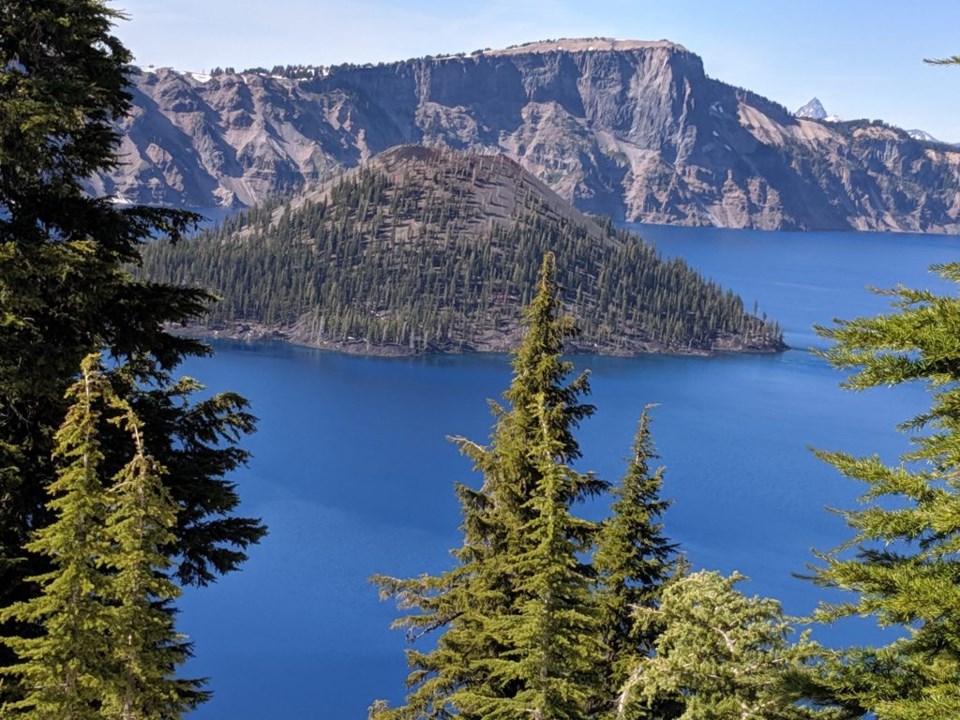
Once Mount Mazama erupted, there were several smaller eruptions within the caldera it left, leaving little cinder cones scattered across its base.
One of those cinder cones is Wizard Island, with its volcanic crater at the top called Witches' Cauldron. Wizard Island is the only cinder cone which is visible above the water level of Crater Lake. The others form its uneven lake bed. Although there are no other islands there is a rock formation called the Phantom Ship, named after the ship-like profile it presents when seen from certain angles.
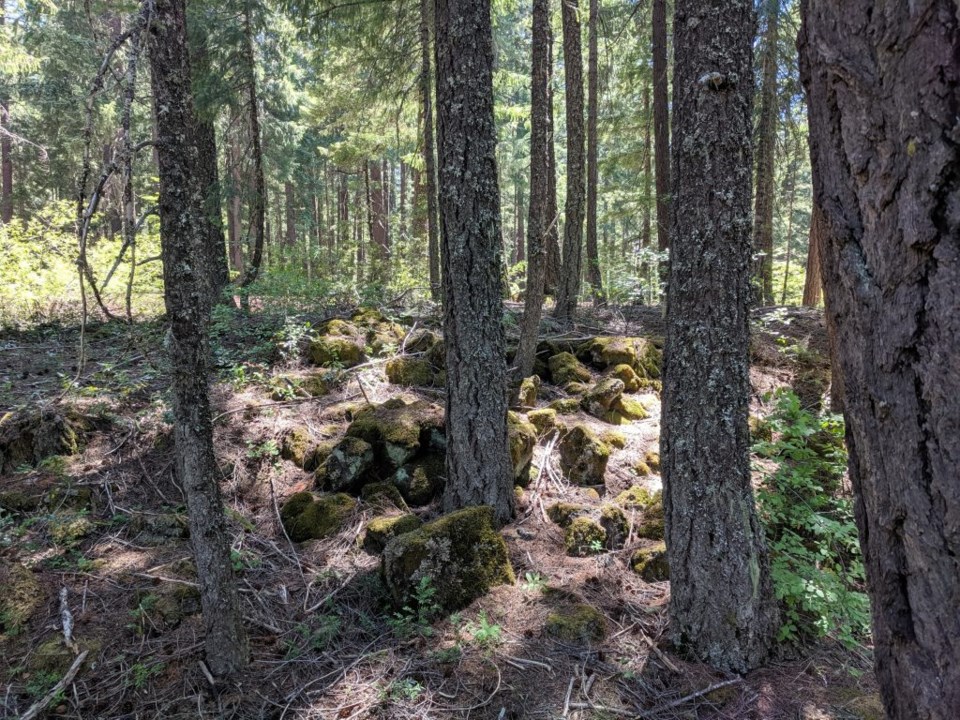
There is more to this region than Crater Lake itself. The Umpqua National Forest surrounding this idyllic lake is beautiful too. It is an old-growth forest, meaning it has not sustained any unnatural change for over a hundred years.
Old-growth forests generally have acres and acres of standing dead trees among tall mature trees and sheltered new growth like moss, fern, and young trees. These stand in contrast to the new-growth forests of Colorado.
In addition, there are several streams and springs that bubble through and around hardened lava flows, adding to the awe-inspiring sights and sounds of the area. Hiking over the springy ground of old-growth forests, surrounded by ferns and moss, I imagined I was traipsing through Fangorn Forest with Treebeard, the shepherd of the trees in Tolkien's Lord of the Rings, discussing the Ents (silent tree-like creatures) that have become "Queer and wild. Dangerous" (Tolkien).
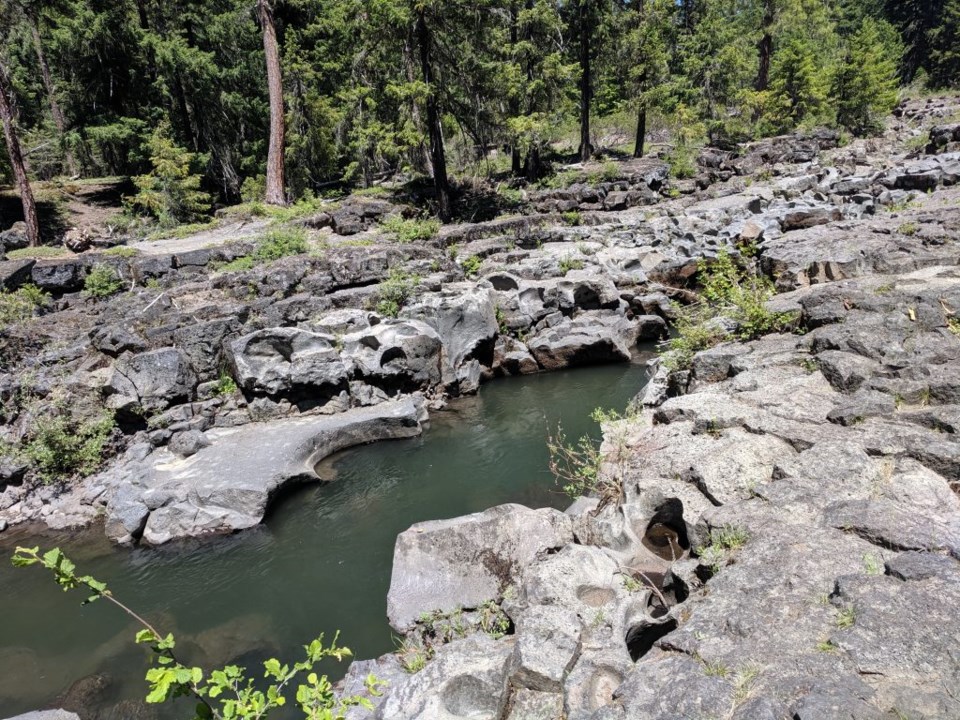
Crater Lake can be a day trip from Eugene, Medford, or even the huge Seven Feathers Resort in Canyonville, Oregon. But if you want to fully experience it, you could head to the Mazama Campground, right in Crater Lake National Park.
This campground has well over 200 spaces for RVs or tents, and each is equipped with a fire ring, picnic table, and bear-proof food locker.
Nearby Mazama Village is equipped with a gas station, restaurant, convenience store, showers, and even laundry. It sounds crowded, but the campsites are spacious and forested.
Still, if you'd rather camp more remotely, you could head to Lost Creek Campground, where there are only sixteen un-reservable ten-sites. Or if you're really adventurous, get a permit and backpack in! Finally, for those of us who are glampers, you could rent a cabin or get a room at the historic Crater Lake Lodge overlooking the peaceful blue waters of the lake.
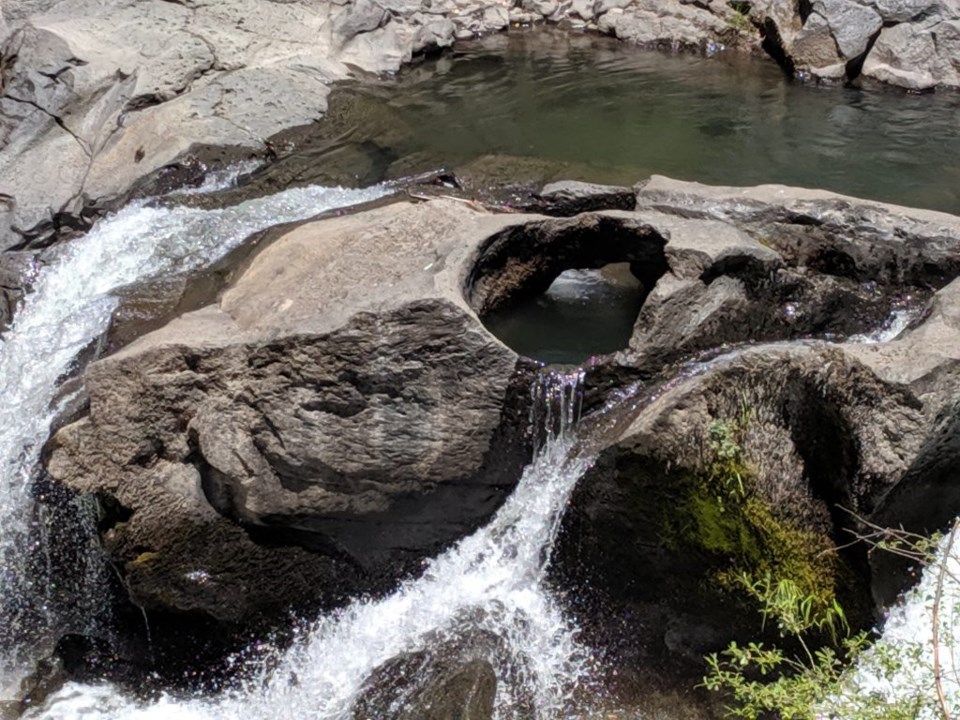
There are 58 National Parks in our beautiful country. How many have you seen? If you haven't seen Crater Lake National Park yet, you might think about putting it on your bucket list!


